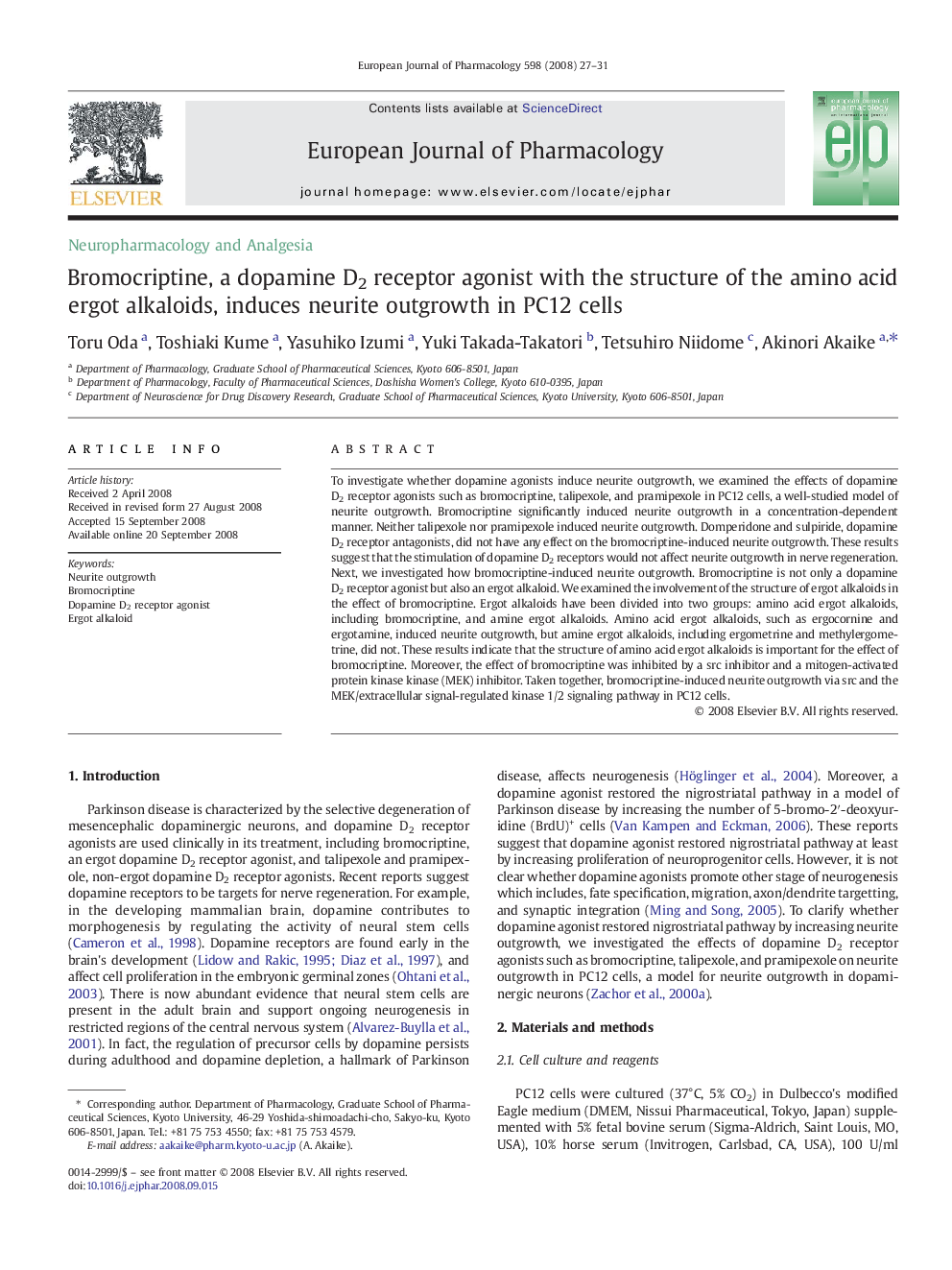| Article ID | Journal | Published Year | Pages | File Type |
|---|---|---|---|---|
| 2534724 | European Journal of Pharmacology | 2008 | 5 Pages |
To investigate whether dopamine agonists induce neurite outgrowth, we examined the effects of dopamine D2 receptor agonists such as bromocriptine, talipexole, and pramipexole in PC12 cells, a well-studied model of neurite outgrowth. Bromocriptine significantly induced neurite outgrowth in a concentration-dependent manner. Neither talipexole nor pramipexole induced neurite outgrowth. Domperidone and sulpiride, dopamine D2 receptor antagonists, did not have any effect on the bromocriptine-induced neurite outgrowth. These results suggest that the stimulation of dopamine D2 receptors would not affect neurite outgrowth in nerve regeneration. Next, we investigated how bromocriptine-induced neurite outgrowth. Bromocriptine is not only a dopamine D2 receptor agonist but also an ergot alkaloid. We examined the involvement of the structure of ergot alkaloids in the effect of bromocriptine. Ergot alkaloids have been divided into two groups: amino acid ergot alkaloids, including bromocriptine, and amine ergot alkaloids. Amino acid ergot alkaloids, such as ergocornine and ergotamine, induced neurite outgrowth, but amine ergot alkaloids, including ergometrine and methylergometrine, did not. These results indicate that the structure of amino acid ergot alkaloids is important for the effect of bromocriptine. Moreover, the effect of bromocriptine was inhibited by a src inhibitor and a mitogen-activated protein kinase kinase (MEK) inhibitor. Taken together, bromocriptine-induced neurite outgrowth via src and the MEK/extracellular signal-regulated kinase 1/2 signaling pathway in PC12 cells.
